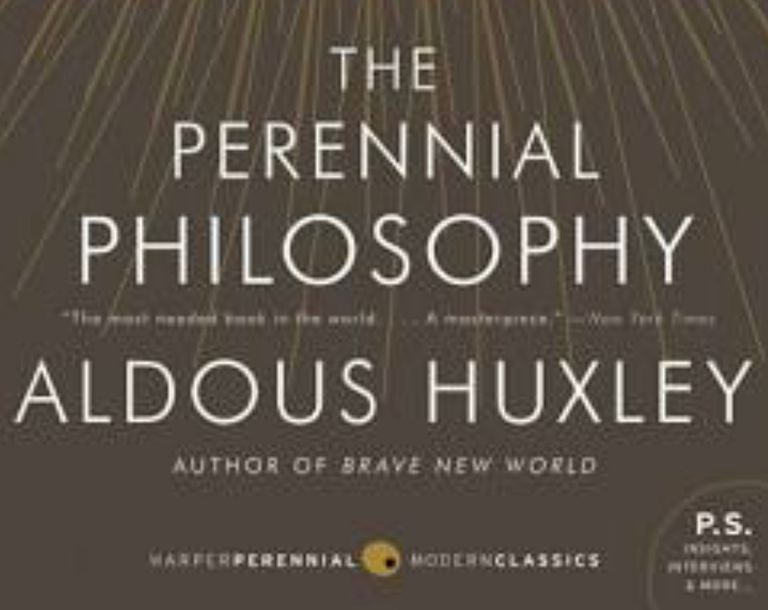Join with us and read The Perennial Philosophy by Alduos Huxley.
The Perennial Philosopy : https://amzn.to/3D2Ill0
Chapter 1 : That Art Thou. [a]
A translation of the Sanskrit Tat tvam asi.
The Perennial Philosophy was first published in 1945.
The Perennial Philosophy is an attempt to present this Highest Common Factor of all theologies by assembling passages from the writings of those saints and prophets who have approached a direct spiritual knowledge of the Divine...
The book offers readers, who are assumed to be familiar with the Christian religion and the Bible, a fresh approach employing Eastern and Western mysticism:
Mr. Huxley quotes from the Chinese Taoist philosophers, from followers of Buddha and Mohammed, from the Brahmin scriptures and from Christian mystics ranging from St John of the Cross to William Law, giving preference to those whose writings, often illuminated by genius, are unfamiliar to the modern reader.
The final paragraph of the jacket text states:
In this profoundly important work, Mr. Huxley has made no attempt to 'found a new religion'; but in analyzing the Natural Theology of the Saints, as he has described it, he provides us with an absolute standard of faith by which we can judge both our moral depravity as individuals and the insane and often criminal behaviour of the national societies we have created.
Huxley's Introduction to The Perennial Philosophy begins:
The metaphysic that recognises a divine Reality substantial to the world of things and lives and minds; the psychology that finds in the soul something similar to, or even identical with, divine Reality; the ethic that places man's final end in the knowledge of the immanent and transcendent Ground of all being — the thing is immemorial and universal. Rudiments of the Perennial Philosophy may be found among the traditionary lore of primitive peoples in every region of the world, and in its fully developed forms it has a place in every one of the higher religions. A version of this Highest Common Factor in all preceding and subsequent theologies was first committed to writing more than twenty-five centuries ago, and since that time the inexhaustible theme has been treated again and again, from the standpoint of every religious tradition and in all the principal languages of Asia and Europe.
In the next paragraph, Huxley summarises the problem more succinctly, saying:
"Knowledge is a function of being."In other words, if you are not suited to knowing something, you do not know it. This makes knowing the Ground of All Being difficult, in Huxley's view.
Therefore, he concludes his Introduction with:
If one is not oneself a sage or saint, the best thing one can do, in the field of metaphysics, is to study the works of those who were, and who, because they had modified their merely human mode of being, were capable of a more than merely human kind and amount of knowledge.

Source: https://en.wikipedia.org/wiki/The_Perennial_Philosophy
🎉 I've just upvoted your (@offgridlife's) content. 🎉
Thank you 🤝
Try the apps which I've built for Blurt & for you.
Thank you very much. - Tat tvam asi
Looks like a good book. I’ll give it a read.